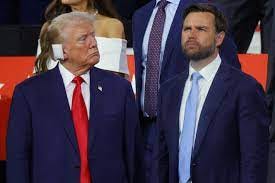The Lord of the Rings was first published in the same month of the same year as I was. For some reason the local library didn't have volume 1 of the trilogy when I asked for it aged 12, and so I began with volume 2, The Two Towers. I have wondered ever since whether the first volume was necessary at all.
Never mind, I loved it. The plotting is masterly, with its split narrative as the Fellowship divides allowing the reader to follow not one but two (and at one stage three) separate journeys, each one full of fighting and jeopardy. All of which you could chart using Tolkien’s beautifully rendered maps of Middle-earth. The writing itself is not high literature and in places can be a bit pedantically inventive - “Smallomir son of Bigomir, son of Biggeromir, High Warden of the Tallest Tower” kind of thing - but it’s full of imagination and allusion, hiding and smiting. And, above all, no kissing. What more could an adolescent boy want? Christmas 1968 brought me a new sleeping bag and this, the first single volume paperback edition. That was a great day.
Since then I have watched the Peter Jackson movies, listened to two BBC dramatisations on radio and eschewed the various tedious add-ons that Tolkien - who perhaps began to take it all too seriously - felt obliged to publish. By the time the Silmarillion was published, I was on to Dostoevsky. At no point in all that time - over 50 years now - have I regarded The Lord of the Rings as a text which might seriously inform any minor action of mine, let alone be a major source of inspiration to a grown-up politician or person of influence in a mature democracy. It’d be like Barack Obama citing The Lion the Witch and the Wardrobe as a guiding text, Emanuel Macron opting for Dune or Angela Merkel extolling the lessons to be learned from The Dragon Riders of Pern.
Hillbilly analogy
And yet the man who may well be the next Vice President of the United States, J.D. Vance, has (now famously) let it be known that the book that has had most impact upon him and his politics is Lord of the Rings. In 2021 Vance took part in a podcast alongside a Republican politician from Indiana, Jim Banks. Banks asked Vance about his favourite book. Let us recall here that in the summer of 2015 when Donald Trump was asked the same question he opted for the Bible. What, he was subsequently asked, were his favourite verses? He replied “I wouldn’t want to get into it. Because to me, that’s very personal. The Bible means a lot to me, but I don’t want to get into specifics.”But did he prefer the Old or the New Testament? “Probably equal”, said Trump, “I think it’s just incredible.” It certainly is.
Back to his new running mate and 2021. Vance’s top tome? “I would have to say Tolkien”, Vance replied. “I’m a big Lord of the Rings guy, and I think, not realising it at the time, but a lot of my conservative worldview was influenced by Tolkien growing up.” Alas there seems to be no record of Vance being pressed on what aspects of the trilogy he felt had had most impact on his politics. Was it possibly Frodo’s charity towards the tortured Gollum that helped lead Vance in 2019 to his conversion to Catholicism? But there’s nothing specifically conservative (in the American New Right sense of the word) about that. Was it the bucolic and separated lifestyle of the hobbits of the Shire, very long rural lives with strong social gradations (labouring Sam calling Frodo “master”, whereas Merry and Pippin are his equals so don’t need to) riven only by the petty jealousies of the likes of the Sackville-Bagginses?






